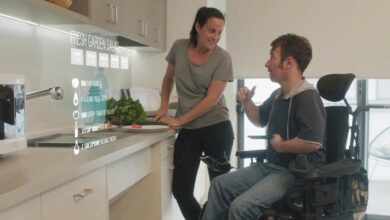Exclusion from health survey not discriminatory finds human rights watchdog
Social justice commissioner will not pursue racial discrimination complaint over ABS decision.
The Australian Human Rights Commission has decided not to investigate whether the Australian Bureau of Statistics (ABS) was discriminatory in its decision to exclude indigenous children from voluntary medical testing in the National Health Survey.
Aboriginal and Torres Strait Islander Social Justice Commissioner Mick Gooda said there were "valid reasons" for the exclusion.
In an email exchange obtained by AAP, dated October 31, the commission said it would not be “formally or informally pursuing the exclusion... as a potentially discriminatory act.”
The decision to exclude indigenous children was the subject of a written complaint to the Australian Human Rights Commission.
Gooda said there were valid concerns about taking biomedical samples from Aboriginal and Torres Strait Islander children.
The commission said that the main issue identified was that "protocols for gathering and using the samples have not been sufficiently thought through, at least for the purposes of the upcoming survey".
"Our information is that the proposal to include Aboriginal and Torres Strait Islander children within the biomedical component of the survey was only considered at the "tail end" of the survey-development process, and that once the complexity of issues around protocols were grasped it was decided not to proceed, given the time constraints," the commission wrote.
The commission added that there was "broad agreement" that indigenous children should be integrated into future surveys but this must be done according to protocols.
Opposition indigenous health spokesman Dr Andrew Laming slammed the ABS, saying their decision represented a "damning assessment of their preparatory work."
He said there was time to reverse the exclusion.
"Saying it is all too hard and excluding children because they are indigenous deserves no place in the 21st century," Laming said.
"It is simply inadequate to fob off the hard bits and resolve to try again five years from now, when the health survey is repeated. That will be too late for thousands of indigenous children living with the poorest health outcomes in the nation."
During a Senate hearing late last month an ABS official said the decision had been made after consulting widely with indigenous health experts who thought it inappropriate to attempt to test indigenous children.
She said the expected low participation rates would affect the quality of data.
The National Health Survey began in March and involves 50,000 randomly sampled adults and children across the country and provides a snapshot of the health of Australians.
For the first time, the survey includes a voluntary collection of blood and urine samples to gauge chronic disease risk factors, such as high cholesterol and levels of nutrients such as iron or B vitamins.
The ABS is due to begin surveying 13,500 indigenous people in April 2012.
AAP
Email: [email protected]




